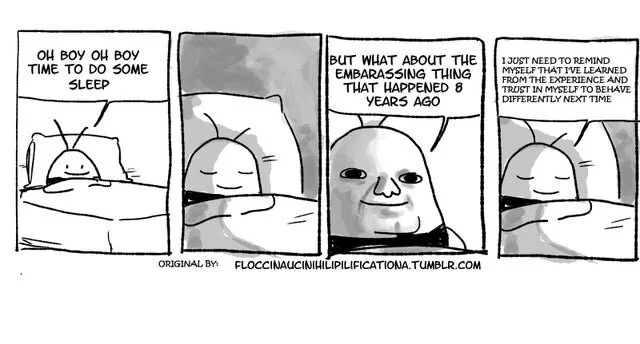CBT…What Now?
“Following on with our mission to crack open some of the mysteries of psychology, today we tackle the well known but seldom understood CBT. Let us help you navigate some of the key terms, and therapy styles that psychologists here at RewireMe use in their daily work”
C – Cognitive
B – Behavioural
T – Therapy
CBT is a short-term therapy that aims to change the way we think (our “cognitions”) in order to change how we feel and behave.
Backed up by years of research, it is psychology’s bread and butter and is really effective in dealing with issues where our thoughts, beliefs and self-talk get us down and stop us from enjoying life. (Think depression, think anxiety, etc.)
Just as our old friend William Shakespeare once wrote “There is nothing either good or bad but thinking [that] makes it so” CBT teaches us that it’s not the people around us or the things that happen to us that are to blame for unhappiness, but that it is our perceptions and how we make sense of those events – the way we think, interpret and react to the shit that happens to us – that creates and maintains suffering and distress.
If, for example, we take a rather shitty situation that happens to us and we start drawing all kinds of conclusions about ourselves, the world, and the future based on one/several unfortunate events, we might find ourselves spiralling into the depths of depression, believing that we suck, the world sucks, and there is nothing else to look forward to but further suckiness forever and ever amen.
Similarly, if we start to fear the occurrence/RE-occurrence of a shitty situation (and believe it would be unbearable if said shitty thing happens) we might find ourselves spending all our time and energy doing everything to prevent it from happening, convincing ourselves that this thing is to be feared and avoided at all costs.
By helping us understand the connection between how we think, and in turn how we feel and what we do, CBT helps us develop skills in first recognising our irrational and faulty thoughts/beliefs - what are often referred to as COGNITIVE DISTORTIONS because of the way they distort or misrepresent reality
E.g. Do we really suck? (Labelling / Personalisation), or are we just good at some things and not so good at others.
Is the world really going to hell in a hand basket? (Overgeneralising / Catastrophising / Filtering), or are both good and bad things happening all the time around us, and it just depends on what we choose to focus on / read about / watch on TV.
COGNITIVE DISTORTIONS
Through such open-ended questioning and REALITY TESTING (literally testing our assumptions and beliefs against evidence from our past or evidence gathered in the present), we then learn to challenge these distorted thoughts head-on, before replacing them with more realistic, compassionate, and less-rigid attitudes towards ourselves and the things that happen to us.
As Sarah Edelman writes in her book Change Your Thinking (you gotta check this one out!), it’s good news that -
“The way we think determines how we feel…because while we may not be able to change people or our life circumstances, we can change the way we think about them. And if we can learn to think in a healthy balanced way, we can stop upsetting ourselves unnecessarily”




